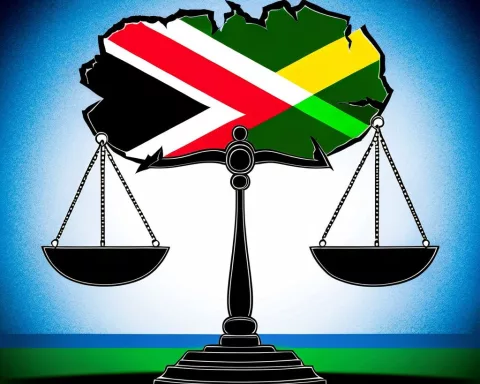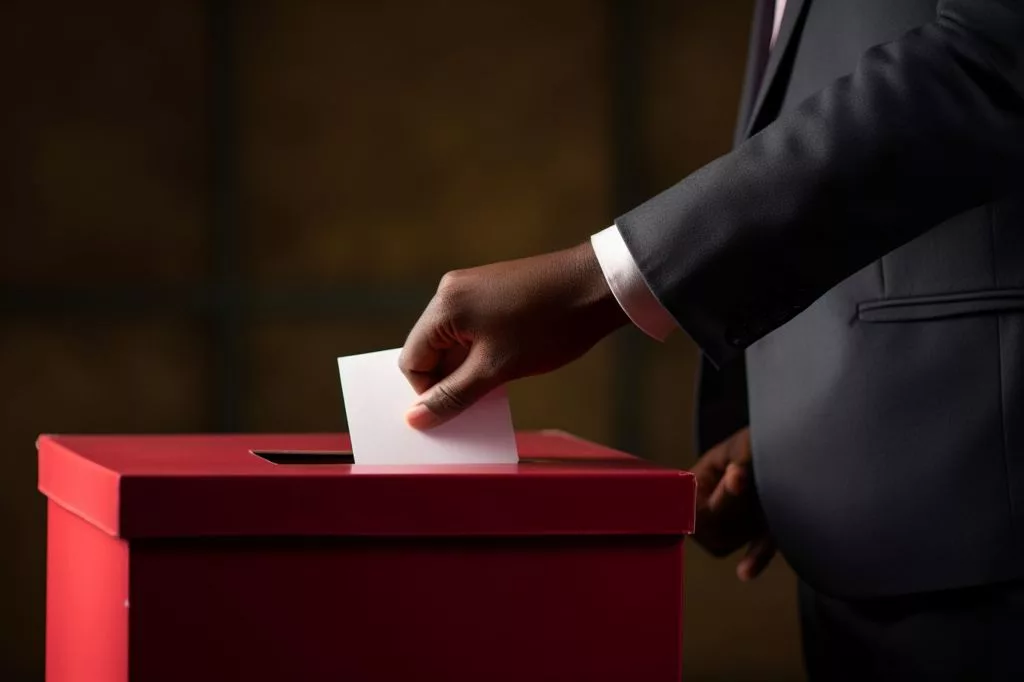The Economic Freedom Fighters (EFF) in South Africa are campaigning against the Israeli Embassy through protests and an urgent request for its removal from the National Assembly. The party’s unwavering support for Palestine and opposition to Israel reflects its commitment to global justice and solidarity with oppressed populations. The EFF’s actions echo historical movements of resistance and solidarity and initiate a broader conversation about the role of political parties in shaping international relations and advocating for global justice.
What is the EFF’s campaign against the Israeli Embassy?
The Economic Freedom Fighters (EFF) in South Africa are campaigning against the Israeli Embassy by organizing protests and submitting an urgent request for the embassy’s removal from the National Assembly. The party’s firm stance against the embassy demonstrates its commitment to global justice and solidarity with oppressed populations, particularly in Palestine. The EFF’s actions resonate with those who seek social justice and international solidarity.
The EFF’s Campaign Against the Israeli Embassy
The Economic Freedom Fighters (EFF), a South African political party, has intensified its efforts against the Israeli Embassy in the country. Through organizing demonstrations and submitting an urgent request for the embassy’s removal from the National Assembly, the EFF aims to showcase its unwavering support for the people of Palestine.
Established in 2013, the EFF is a radical and revolutionary movement striving to bring about significant social and economic transformation in South Africa. The party’s firm stance against the Israeli Embassy is a testament to its commitment to global justice and solidarity with oppressed populations around the world.
A recent demonstration outside the Israeli Embassy was a notable turning point in the EFF’s campaign. Sporting their iconic red berets, the protesters pledged not only their support but also their willingness to provide weapons to the people of Palestine if they were to win the 2024 national elections. This daring statement further emphasizes the EFF’s dedication to the Palestinian cause and its readiness to challenge the existing order.
The EFF’s Urgent Letter to the Speaker of Parliament
After the protest, the EFF submitted a letter to the Speaker of Parliament, requesting the removal of the Israeli Embassy. Written by the party’s chief whip, Floyd Shivambu, the letter refers to Rule 119 of the National Assembly, which permits a resolution to be finalized with or without a debate.
The letter’s urgency is apparent in its demand for a prompt reply from the Speaker: “Given the sensitivity and the nature of the proposed draft resolution, we respectfully request that the Speaker, in the capacity of Chairperson of the National Assembly Programming Committee, convene an urgent meeting to ensure the draft resolution is tabled before the end of the week.”
During the demonstration, EFF leader Julius Malema expressed his strong disapproval of Israel, labeling the nation as murderers. He declared, “We can’t stay in the same area with murderers breathing the same air with people who kill innocent people.” Malema’s impassioned language reflects the intensity of the EFF’s commitment to the Palestinian cause and their desire to see tangible change in South Africa’s diplomatic relations with Israel.
Malema also did not hesitate to address other prominent political figures, including South African President Cyril Ramaphosa. He accused Ramaphosa of accepting financial support from Jewish individuals and the Israeli government, resulting in his reluctance to take a stand on the issue.
The EFF’s Broader Impact on Global Politics and History
The EFF’s actions and rhetoric about the Israeli Embassy mirror larger historical and artistic movements of resistance and solidarity that have shaped global politics. The party’s fervent stance against the Israeli Embassy evokes memories of the anti-apartheid movement that characterized South Africa’s political environment in the latter half of the 20th century. Similar to the anti-apartheid movement’s call for international solidarity and boycotts against the South African government, the EFF is now urging a comparable response to the Israeli government’s actions in Palestine.
The scholarly importance of the EFF’s campaign against the Israeli Embassy goes beyond politics and history. It also delves into the intricate dynamics of power, oppression, and resistance that underlie contemporary global affairs. The EFF’s unwavering dedication to the Palestinian cause highlights the interconnectedness of struggles against oppression worldwide and invokes the spirit of solidarity that has fueled countless social and political movements throughout history.
In addition, the EFF’s actions initiate a broader conversation about the role of political parties in shaping international relations and advocating for global justice. As demonstrated by the EFF, political parties can play a vital role in influencing diplomatic policies and forging connections with marginalized communities across the globe.
Despite the sophisticated language and academic references, the EFF’s position on the Israeli Embassy remains accessible to a general audience. The party’s actions resonate with those who seek social justice and international solidarity, irrespective of their understanding of the complexities of global politics.
In conclusion, the Economic Freedom Fighters’ struggle against the Israeli Embassy symbolizes a robust movement for change, both within South Africa and on the global stage. As the EFF continues its quest for the embassy’s removal, it exemplifies the spirit of solidarity and resistance that has defined numerous historical and artistic movements. As the 2024 national elections approach, the party’s actions and rhetoric will undoubtedly influence the discourse surrounding South Africa’s relations with Israel and the future of the Palestinian cause.
1. What is the EFF’s campaign against the Israeli Embassy?
The Economic Freedom Fighters (EFF) in South Africa are campaigning against the Israeli Embassy by organizing protests and submitting an urgent request for the embassy’s removal from the National Assembly. The party’s firm stance against the embassy demonstrates its commitment to global justice and solidarity with oppressed populations, particularly in Palestine. The EFF’s actions resonate with those who seek social justice and international solidarity.
2. What is the EFF’s position on Palestine?
The EFF has an unwavering support for Palestine and opposition to Israel, reflecting its commitment to global justice and solidarity with oppressed populations.
3. What is the EFF’s history and ideology?
Established in 2013, the EFF is a radical and revolutionary movement striving to bring about significant social and economic transformation in South Africa. The party’s ideology is based on economic freedom, land expropriation without compensation, and nationalization of strategic sectors of the economy.
4. What was the significance of the recent demonstration outside the Israeli Embassy?
The recent demonstration outside the Israeli Embassy was a notable turning point in the EFF’s campaign. Sporting their iconic red berets, the protesters pledged not only their support but also their willingness to provide weapons to the people of Palestine if they were to win the 2024 national elections. This daring statement further emphasizes the EFF’s dedication to the Palestinian cause and its readiness to challenge the existing order.
5. What was the EFF’s urgent letter to the Speaker of Parliament about?
After the protest, the EFF submitted a letter to the Speaker of Parliament, requesting the removal of the Israeli Embassy. Written by the party’s chief whip, Floyd Shivambu, the letter refers to Rule 119 of the National Assembly, which permits a resolution to be finalized with or without a debate.
6. What does the EFF’s campaign against the Israeli Embassy mean historically and politically?
The EFF’s actions and rhetoric about the Israeli Embassy mirror larger historical and artistic movements of resistance and solidarity that have shaped global politics. The party’s fervent stance against the Israeli Embassy evokes memories of the anti-apartheid movement that characterized South Africa’s political environment in the latter half of the 20th century. Similar to the anti-apartheid movement’s call for international solidarity and boycotts against the South African government, the EFF is now urging a comparable response to the Israeli government’s actions in Palestine.
7. What is the scholarly importance of the EFF’s campaign against the Israeli Embassy?
The EFF’s campaign against the Israeli Embassy goes beyond politics and history. It also delves into the intricate dynamics of power, oppression, and resistance that underlie contemporary global affairs. The EFF’s unwavering dedication to the Palestinian cause highlights the interconnectedness of struggles against oppression worldwide and invokes the spirit of solidarity that has fueled countless social and political movements throughout history.
8. What is the broader impact of the EFF’s campaign on global politics and international relations?
The EFF’s actions initiate a broader conversation about the role of political parties in shaping international relations and advocating for global justice. As demonstrated by the EFF, political parties can play a vital role in influencing diplomatic policies and forging connections with marginalized communities across the globe. The party’s actions and rhetoric will undoubtedly influence the discourse surrounding South Africa’s relations with Israel and the future of the Palestinian cause.












